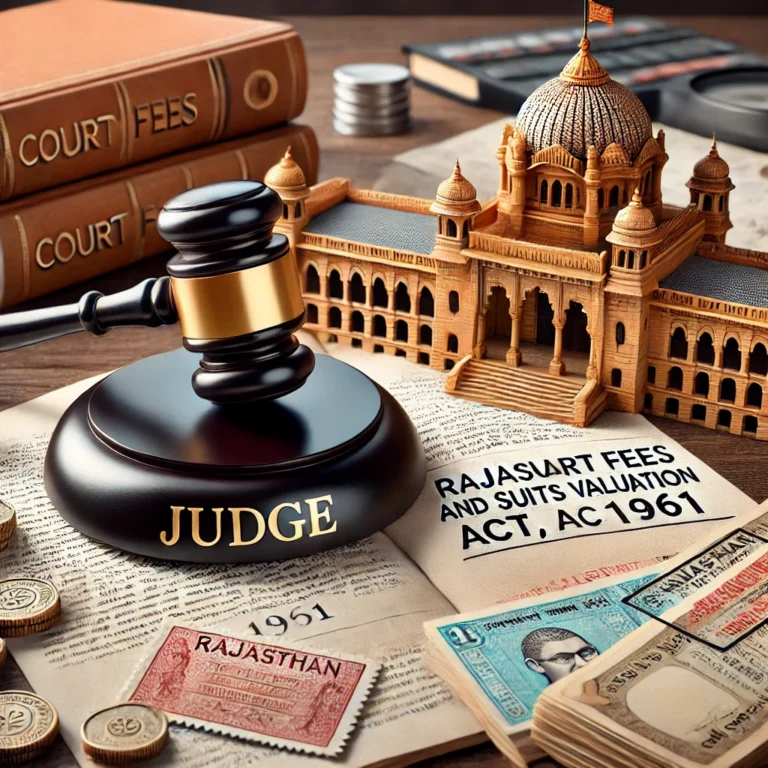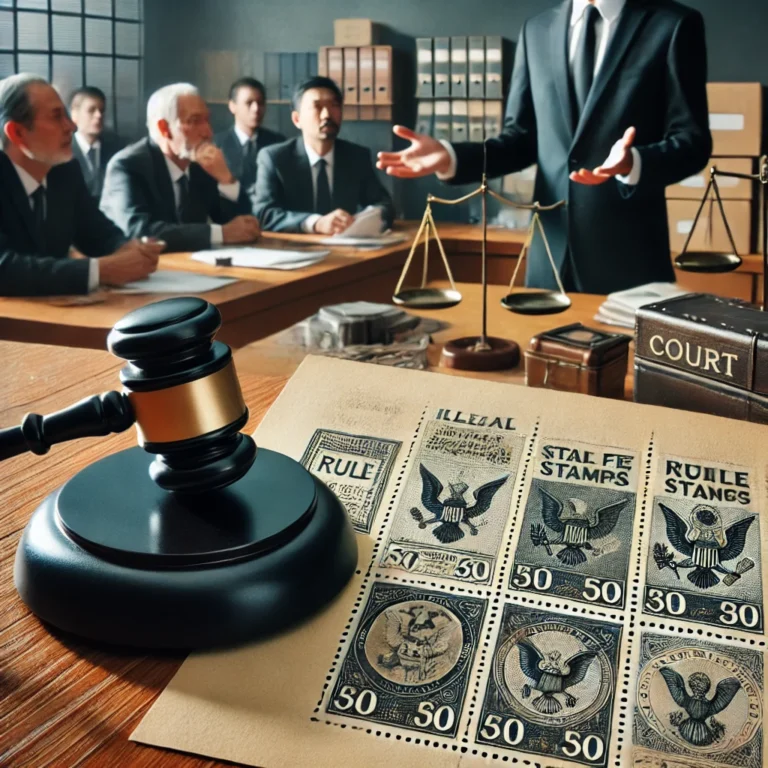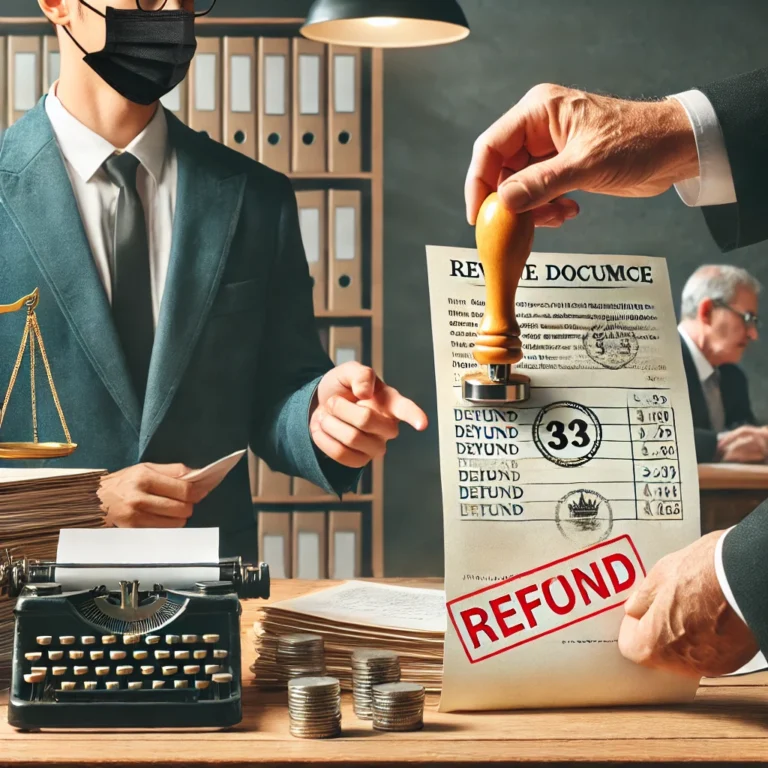
Court Fees in Landlord-Tenant Disputes, Mesne Profits, and Public Interest Cases (Sections 41, 42, 43)
Section 41: Fees in Court for Disputes Between Tenants and Landlords
Section 41 of The Rajasthan Court Fees and Suits Valuation Act, 1961, describes that how the court fee is to be charged in a suit between landlords and tenants. The fee is according to the rent of property for the preceding year of filing the suit.
This provision is applicable to different disputes, for example, when a tenant does not provide a copy of the lease to the landlord or when a landlord seeks to raise the rent. It also covers instances where a tenant is illegally evicted, or there is a dispute regarding the right to occupy a property.
For instance, if a tenant is evicted by a landlord without due notice as per the law, the tenant can initiate a case for recovering possession of the property. The court charges will be as per the rent of the property for the last year. In the same manner, if the landlord wishes to enhance the rent and the tenant objects, the landlord can file a suit and the charges will be determined based on the current rent.
When a landlord initiates a case to evict a tenant who is still residing in the house after the termination of the lease, the court fee is computed using the previous year’s rent and any additional premium paid. The law also clarifies that “rent” also means damages for illegal use of the premises after the end of the lease.
For More Updates & Regular Notes Join Our Whats App Group (https://chat.whatsapp.com/DkucckgAEJbCtXwXr2yIt0) and Telegram Group ( https://t.me/legalmaestroeducators ) contact@legalmaestros.com.
Section 42: Court Fees for Mesne Profits Cases
Mesne profits are the money received on a property by an individual who is not lawfully entitled to own it. Section 42 defines how the court charges are determined in this situation. The charge is according to the value of profit for which the case is filed.
If the court holds that the true mesne profits are greater than those mentioned in the suit, the plaintiff is required to pay the additional court fee prior to the passing of the decree. If a court directs an inquiry into mesne profits prior to or subsequent to the filing of the case, the final decree will be granted only after payment of the entire fee for all the profits.
For instance, if someone illegally occupies a shop and makes ₹60,000 annually from it, the owner can file a case to recover the same. If the owner makes a claim of only ₹50,000 as mesne profits in the first instance, but the court holds that the actual amount is ₹60,000, the owner has to pay the extra court fee before the final decree is granted.
If a decree directs payment of mesne profits for subsequent years at a specified rate, it cannot be executed unless the court fee payable in respect of such execution is paid when the execution is applied for.
Section 43: Court Fees for Public Interest Cases
Section 43 provides for cases in respect of public welfare under Sections 91 and 92 of the Code of Civil Procedure, 1908. These cases typically encompass legal proceedings against public nuisances or mismanagement of charitable trusts. The court fee in these cases is prescribed at ₹30.
For instance, if a citizens’ group submits a case of pollution in the area caused by a factory to the court, the court charges for this action will be ₹30. It is the same for challenging an act of public trust or an institution of faith mismanaged in any way.
This provision prevents significant public interest cases from being stalled because of exorbitant court fees, and hence citizens find it less difficult to approach the courts to seek justice for matters concerning the general public.






